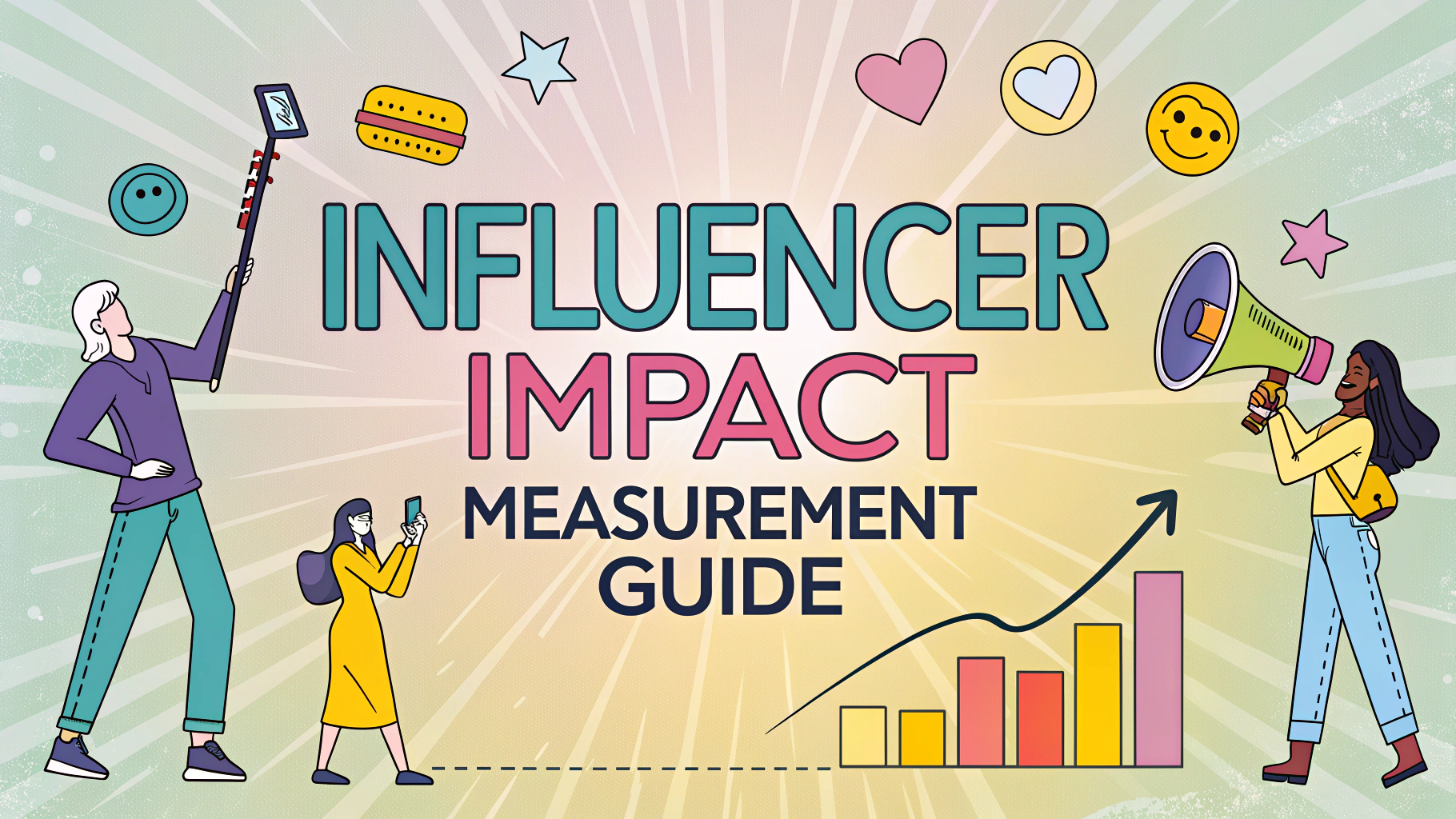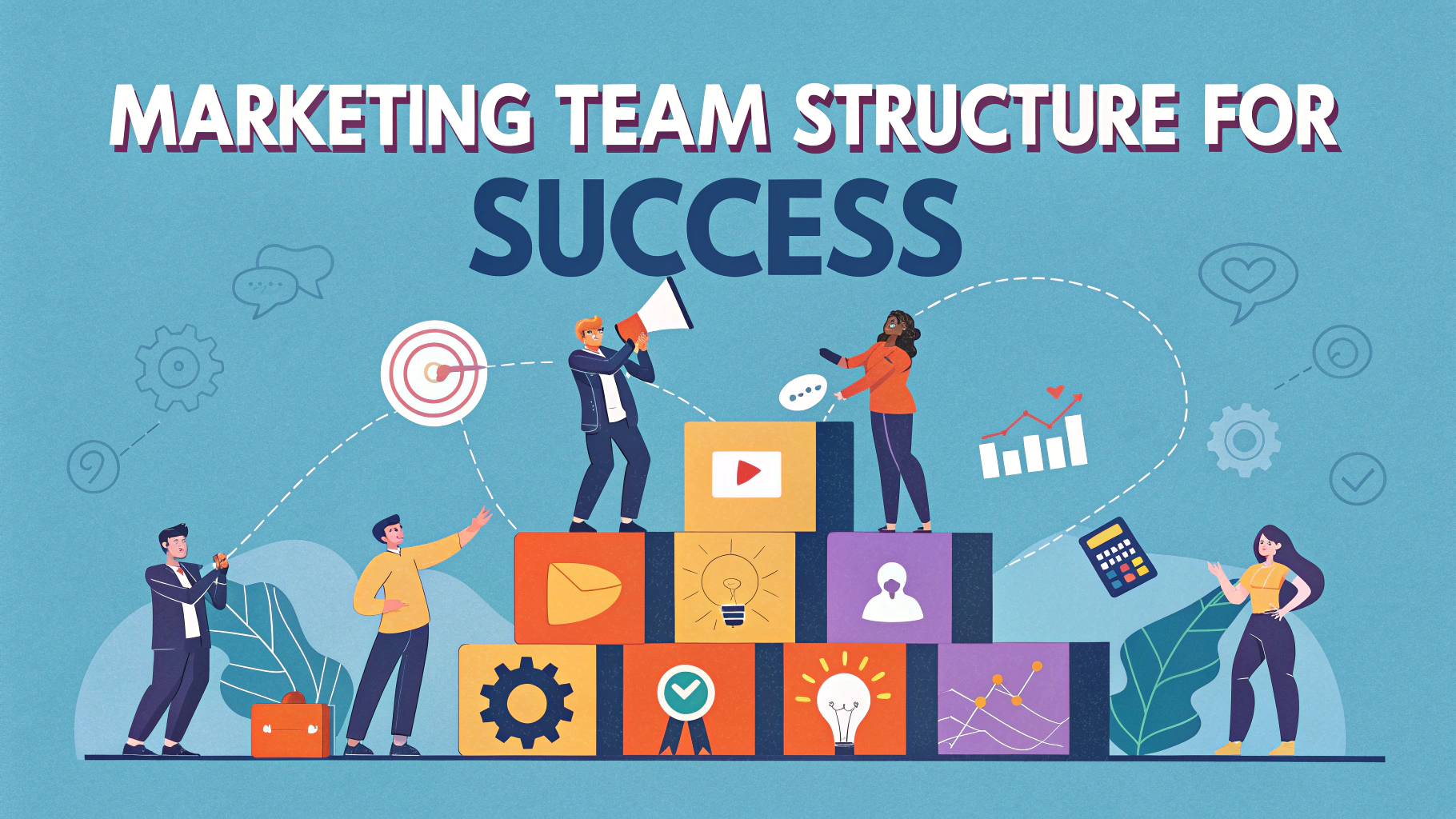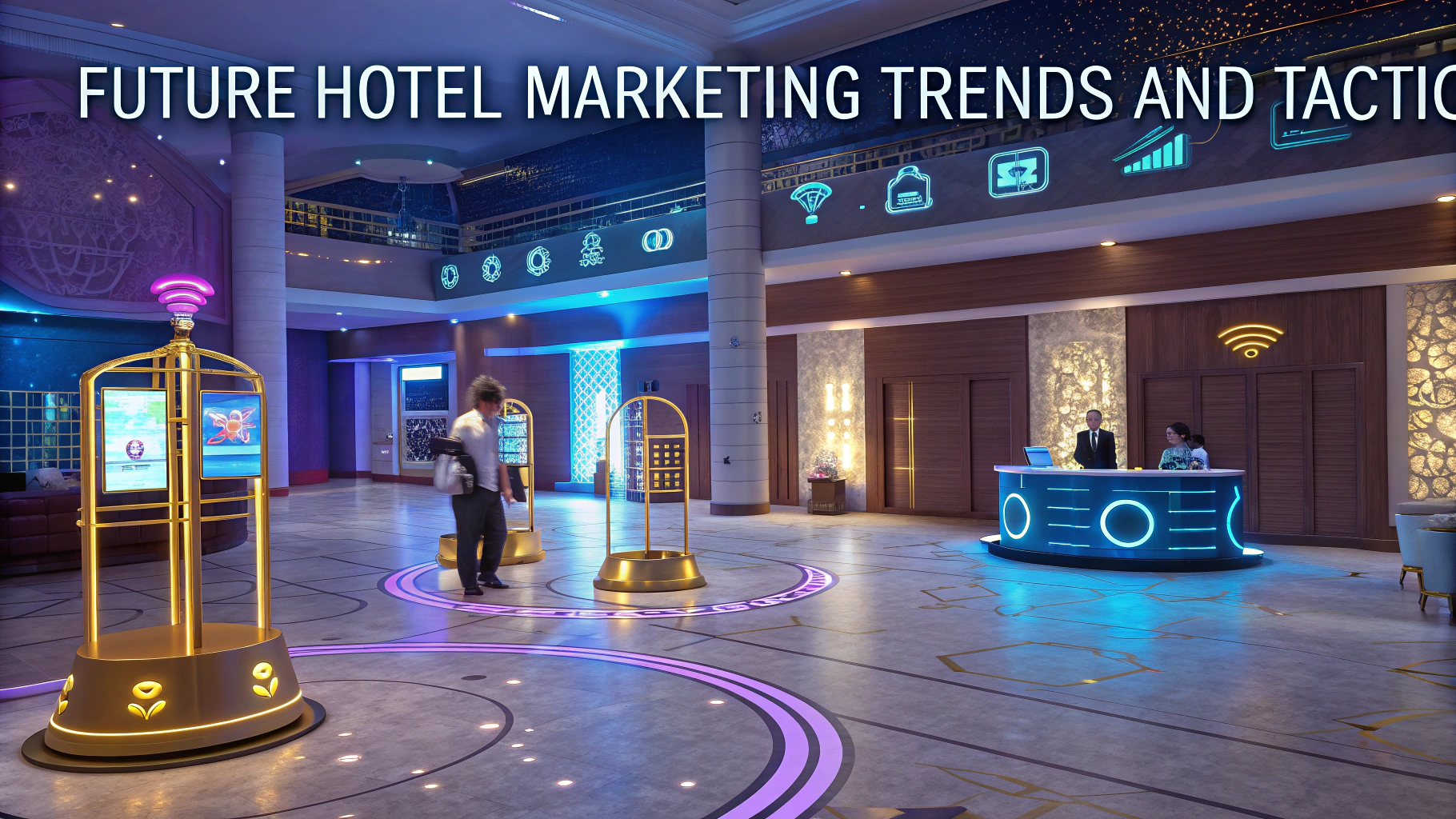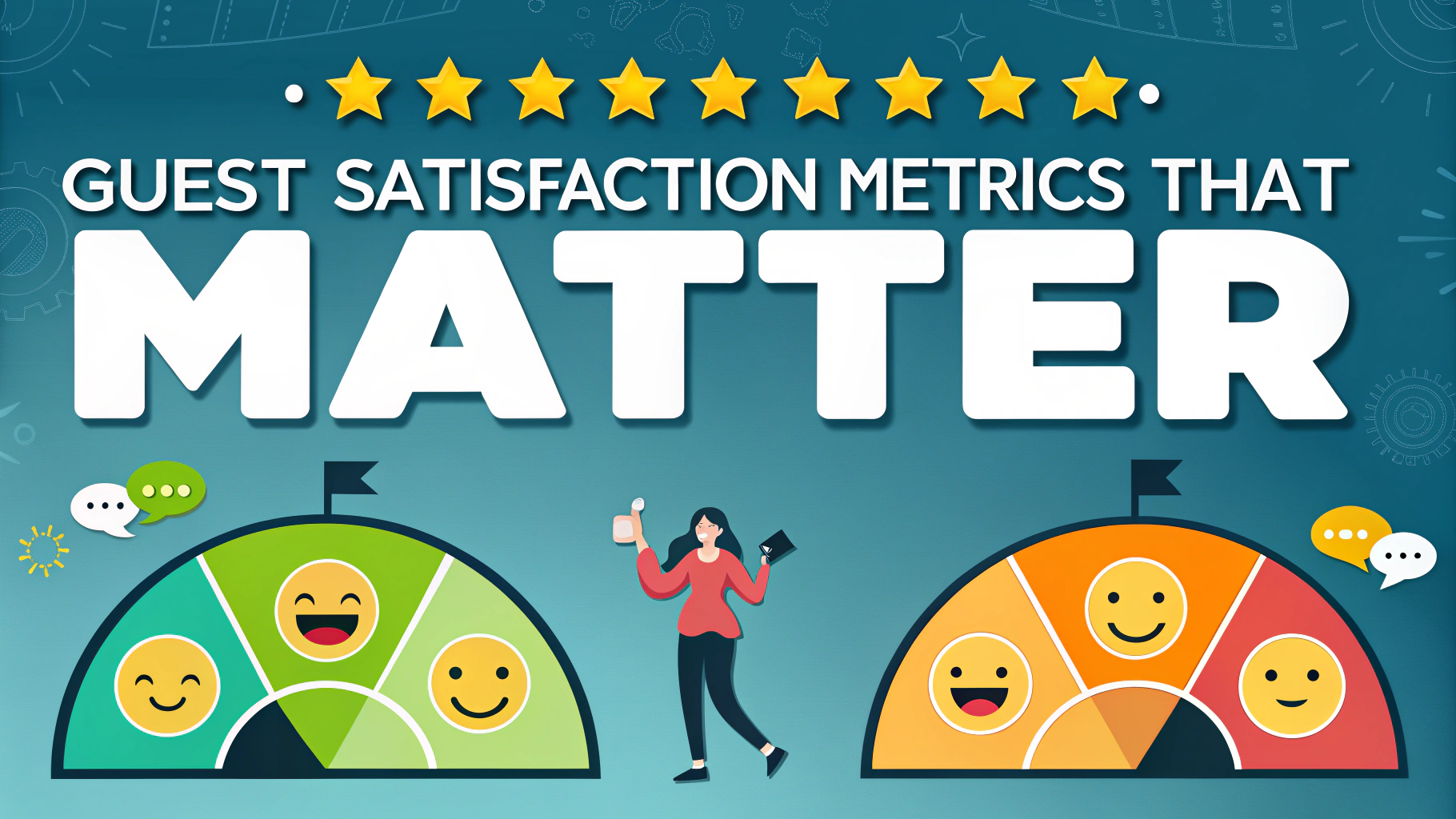The hospitality industry is rapidly adopting AI-powered chatbots to enhance guest experiences and streamline operations.
Hotels using chatbots report significant improvements in guest satisfaction scores and substantial reductions in routine inquiry handling time.
This practical guide shows you how to successfully implement AI chatbots in your hotel, from selecting the right platform to measuring ROI.
Choosing the Right Hotel Chatbot Solution
- ZenDesk – Excellent for multi-language support and integration with existing hotel systems
- LivePerson – Strong analytics and guest behavior tracking capabilities
- Medallia – Specialized in hospitality with built-in hotel-specific features
- HiJiffy – Purpose-built for hotels with booking engine integration
Key Features Your Hotel Chatbot Needs
- 24/7 automated responses to common guest inquiries
- Seamless integration with your property management system
- Multi-language support for international guests
- Booking capability with real-time inventory updates
- Easy handoff to human staff for complex requests
Common Use Cases for Hotel Chatbots
Chatbots can handle room reservations, providing instant confirmation and reducing booking abandonment rates.
They efficiently manage check-in/check-out procedures, including early check-in requests and late checkout arrangements.
Automated concierge services can provide local recommendations, weather updates, and directions to nearby attractions.
Implementation Steps
- Audit current guest communication channels and pain points
- Select a chatbot platform that integrates with existing systems
- Create a knowledge base of common guest questions and responses
- Test the chatbot extensively with different scenarios
- Train staff on managing chatbot handoffs and escalations
- Launch with a pilot program before full deployment
Measuring Success
| Metric | Target |
|---|---|
| Response Time | < 10 seconds |
| Resolution Rate | > 80% |
| Guest Satisfaction | > 4.5/5 |
| Cost per Interaction | < $0.50 |
Best Practices for Ongoing Management
- Regularly update the chatbot’s knowledge base with new information
- Monitor guest feedback and adjust responses accordingly
- Review chatbot analytics monthly to identify improvement areas
- Keep staff trained on latest chatbot features and capabilities
Moving Forward with AI Guest Service
Start with a clear implementation plan and realistic goals for your hotel’s chatbot deployment.
Focus on solving specific guest pain points rather than trying to automate everything at once.
Remember that chatbots should enhance, not replace, human interaction in your hotel’s guest service strategy.
Training Your Hotel Staff
- Provide comprehensive training on chatbot functionality and limitations
- Establish clear protocols for human takeover scenarios
- Create guidelines for maintaining consistent service quality
- Develop troubleshooting procedures for common technical issues
Security and Privacy Considerations
Implement robust data protection measures to safeguard guest information and comply with privacy regulations.
Ensure secure payment processing integration and PCI compliance for booking transactions.
- Regular security audits of chatbot systems
- Data encryption for all guest communications
- Clear privacy policies and consent management
- Compliance with local data protection laws
Scaling Your Chatbot Operations
Growth Strategies
- Expand language capabilities based on guest demographics
- Add new features based on usage patterns
- Integrate with additional hotel services
- Deploy across multiple properties if applicable
Performance Optimization
- Regular AI model training with new data
- Response refinement based on guest feedback
- System capacity planning for peak seasons
- Integration optimization with third-party services
Embracing the Future of Hotel Guest Service
AI chatbots represent a transformative opportunity for hotels to deliver exceptional service while optimizing operational efficiency.
Success depends on choosing the right technology, maintaining a balance between automation and human touch, and continuously evolving with guest needs.
Hotels that thoughtfully implement and manage their chatbot solutions will position themselves at the forefront of hospitality innovation and guest satisfaction.
FAQs
- What are the key benefits of implementing hotel chatbots?
Chatbots provide 24/7 customer service, reduce operational costs, handle multiple inquiries simultaneously, decrease staff workload, and improve guest satisfaction through instant responses. - How much can hotels save by implementing AI chatbots?
Hotels can reduce customer service costs by 30-40% through chatbot implementation, with potential savings of $0.50-$0.70 per interaction compared to traditional customer service methods. - What are the essential features a hotel chatbot should have?
Essential features include room booking capabilities, check-in/check-out assistance, multilingual support, integration with property management systems (PMS), FAQ handling, and secure payment processing. - How long does it take to implement a chatbot in a hotel system?
Basic chatbot implementation typically takes 4-8 weeks, including setup, training, and integration with existing hotel systems. Complex implementations may take 3-6 months. - What types of guest inquiries can hotel chatbots handle?
Chatbots can handle room reservations, pricing inquiries, amenity information, local recommendations, check-in/out times, room service orders, housekeeping requests, and basic troubleshooting. - How do hotel chatbots integrate with existing property management systems?
Chatbots integrate through APIs, allowing them to access real-time inventory, pricing, guest profiles, and booking information from the hotel’s PMS and other operational systems. - What is the average ROI for hotel chatbot implementation?
Hotels typically see ROI within 6-12 months, with average returns of 100-300% based on reduced operational costs and increased direct bookings. - How can hotels ensure their chatbots maintain a personal touch?
Hotels can personalize chatbots by using guest data to provide customized responses, maintaining brand voice, offering seamless human handover options, and incorporating guest preferences into interactions. - What security measures should be in place for hotel chatbots?
Essential security measures include encryption for data transmission, secure payment processing, GDPR compliance, regular security audits, and proper data storage protocols. - Can hotel chatbots handle multiple languages?
Yes, modern hotel chatbots can support multiple languages through natural language processing (NLP) and machine translation, typically handling 10-15 major languages effectively.







